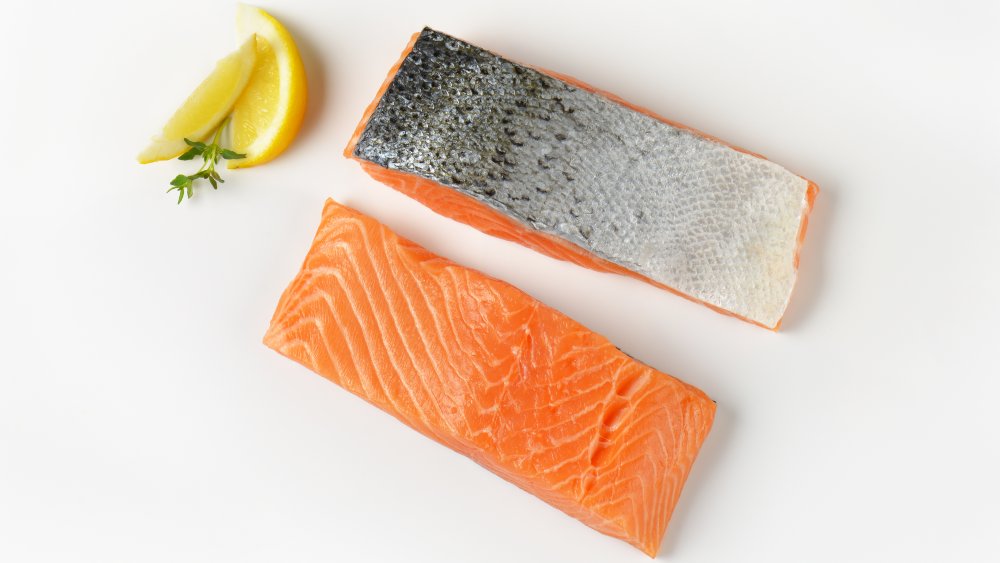The Real Reason You Shouldn't Remove Salmon Skin
Not everyone knows how to handle salmon skin in the kitchen, but there's a good reason you should keep it on! In addition to it being delicious, the skin is quite good for you. While many people indulge in a salmon skin roll at their favorite sushi establishment, they may be concerned about being able to prepare it on their own. Fair enough. But here's the lowdown on eating salmon skin.
Similar to eating the skins of fruits and vegetables, salmon skin has a good deal of health benefits as well. There's lots of talk about salmon being a good source of omega-3 fatty acids in general, but what you may not know is that the highest concentration of this fatty acid is found in the skin of the fish (via Healthline). In addition to reducing the risk of heart disease, and protecting the brain and eyes from degenerating, research has determined that omega-3 fatty acids appear to help prevent the formation of cancer cells in the body (via Medical News Today).
More benefits and drawbacks to eating salmon skin
Need more evidence that eating salmon skin is beneficial to your health? Studies have also shown that salmon skin might be helpful for those suffering from type 2 diabetes. A study which appeared in the Marine Drugs journal showed that salmon skin had large amounts of antioxidants, and as a result may help heal wounds caused by diabetes.
On the other hand, some studies have shown that salmon, depending on where it's caught, can exhibit levels of polychlorinated biphenyls, a byproduct of industrial runoff, which can be stored in the skin. However, it should be taken into account that these PCBs exist in such small amounts, that it would take a diet of almost exclusively fish before you noticed any ill effects.
Still, it stands to reason that people should be aware, and careful about the what they ingest. So, if you have developed a love for salmon and its skin, and you're concerned about your toxin intake, check out the FDA's recommendations for eating fish.

